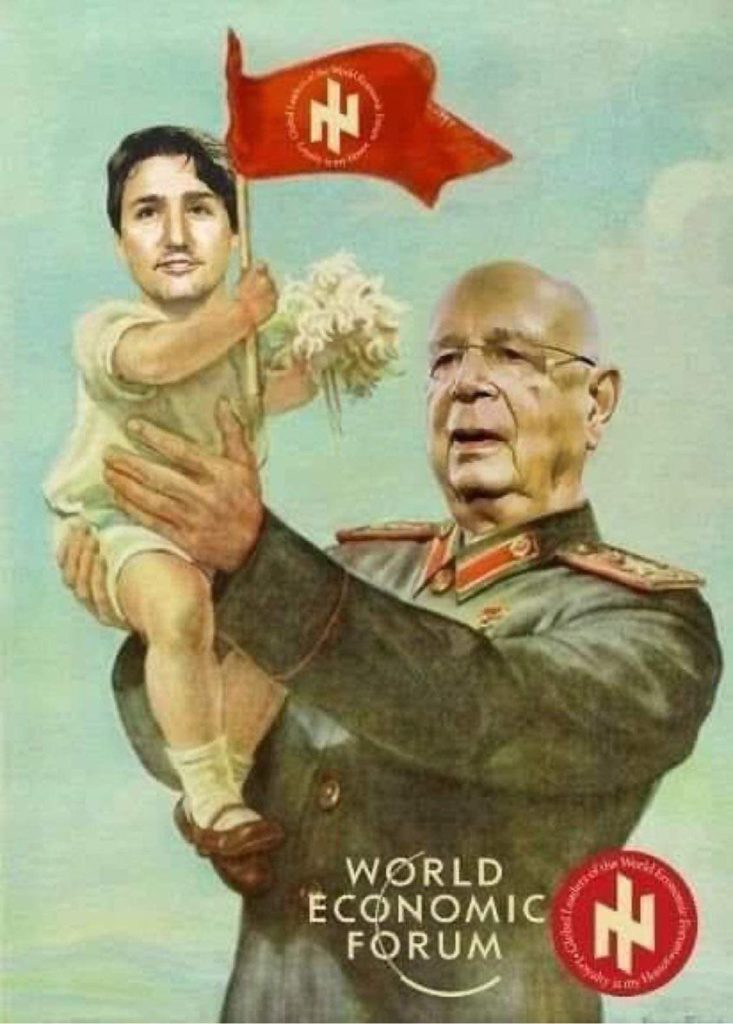I read a few Telegram channels, one of which recently posted about the fact that Saudi Arabia has terminated its agreement with the US to accept payment for its oil only in USD. I believe the writer sees this as part of the ongoing unravelling of the old order and ponders its significance. I penned the following, but was unable to post on his channel since he has quite wisely instituted restrictions on the length of replies and also does not allow long replies to be split over multiple posts. This indicates to me that he is actually running the channel on his own and does not have “staff” to manage the spam.
Anyway this is what I wrote :
I get that your commenting on this, is that you see it as part of the entire systemic unravelling that we’re currently witnessing. This system is ending, probably messily, because it is unsustainable and because those “in charge”, who really don’t know what they’re doing, have embraced some horrible ideas. But the attractiveness of USD versus any other currency is actually a pretty complicated subject, and not due solely to Saudi oil being sold solely in USD (or not), or for that matter US interest rates or Bond issuance levels. There are more significant factors at play.
The first is that, however bad things look for US debt levels, the issuance of US debt fulfills a global function. US bonds act as collateral for money creation in the global economy outside the US. As a simple example, Japanese banks issuing USD loans (“creating money out of thin air”) to Chinese companies, accept only US Bonds as collateral. This creates sustained demand for US Treasuries, because their value to the holder is not the payment of the Bond coupon or the return of the principal at redemption, but the value of the project they are used to fund, which, bit of a random guess, may have an ROI of anywhere from 30% to, I don’t know, 200% ?? A big number. The 5% yield on the Bond itself is irrelevant. The US financial markets are the biggest and therefore most liquid. No bank would accept Chinese bonds (no rule of law) or Japanese, (60% of the market is owned by the BoJ), certainly not Eurozone, since the Eurozone must eventually collapse and default (the ECB can’t create currency or borrow). There is no alternative to the US Bond market as collateral.
The second point is, Saudi oil notwithstanding, some huge percentage of international trade is settled in USD, so there is sustained demand for USD through usage. If I’m a Brazilian exporter, selling my product to 20 different countries and settling all in USD is far more efficient than having to settle in 20 individual currencies. Sure, Oil is the most important global commodity, and the Saudi move is ‘interesting’, but it is not clear what effect it will have, if any. KSA is still a ‘US aligned’ country and Oil will still be priced and traded in USD. All this talk of the BRICS creating their own currency is (currently still) laughable. To replace USD, all these currencies would have to agree to create either a new currency and it would have to be somehow collateralised. No one will use a Chinese Communist CBDC. China may be buying all the Gold, but this currency will never be Gold backed i.e. convertible. If any foreign party thinks they will be able to swap pieces of freshly printed paper for Chinese Gold and take it home, they will be very disappointed. Similarly, tokenised “ownership” of Chinese held Gold under a Chinese gold-backed CBDC is also laughable. China does not permit private property. Full Stop. If these countries, who are not really “allies”, try to set up some kind of clearing system they will still have the problem of where Gold is located, how to transport Gold from one location to another and under what conditions can balance transfers take place.
But the main problem of Gold backed currencies is that the supply of “money” is restricted to the amount of Gold available to back it. Since economic activity is fundamentally driven by the amount of currency available to flow within the economy and enable transactions, the restriction of this flow would immediately create deflationary collapse within the these emerging economies and the resulting social disruption would probably be terminal for any number of regimes unwise enough to try it. On the other hand, if these countries decide to replace USD in transactions they would have to print their own currency to act as ‘the means of exchange’. Since this could not be Gold backed, if it were instead unbacked, or backed by some irredeemable ‘notional’ value, then this would have the opposite effect of initiating a Weimar or Zimbabwe style collapse in the value of the currency, leading to hyperinflation.
At the deepest level, the current system is only the way it is because the US is willing to run a huge deficit, otherwise it would not need to borrow, its bonds would not be the backing of the world’s fiat currency banking systems and its currency would not be the global currency of trade and finance. This is the product of the Anglo free market system and its resulting 20th century ascent to global dominance, and has enabled the US to project force throughout the world, debatably to the detriment of any involved, not least the US itself. The flip side of this is that the rest of the world is engaging in mercantilism, trying to run surpluses and accumulate wealth domestically at the expense of their trading partners. Which of these countries would choose, or be able, to reverse roles ? None, of course.
Under these circumstances, the most probable outcome of these initial attempts at “de-dollarization” will be completely perverse. USD will increase in value in the coming years. As these threats of devaluation of non US currencies become clearer, all asset holders outside the US will come to view the US as the only safe haven and start to transfer as much of their wealth there as possible. This is why the US dollar will go much higher against all world currencies and why, having bought those USD, foreigners will buy US assets; the primary beneficiary will be the most liquid US stocks. These inflows will do a lot to sustain US fiscal profligacy for a few more years, so the increase in US interest rates will not be harmful to the US’s ability to service this debt, since they will be able to refinance it for a long time to come with continued foreign buying. The Fed’s ‘ace in the hole’ is that all the gold on its balance sheet is valued at $35 an ounce (or something equally unrealistically low). So for the next few years USD will outperform all other fiat currencies, but in the end, Gold will ultimately outperform USD.
Once digital money is forced on us, then private digital money will take the place of public (government) digital money in private transactions and we will end up with two tier money. Probably not BTC on the main chain, (although Lightning network is very interesting with some great privacy projects like NOSTR), or some other privacy coin like Monero (XMR) or Pirate Chain (ARRR), which will be decided by the market.
But whatever happens, “they” won’t win.

